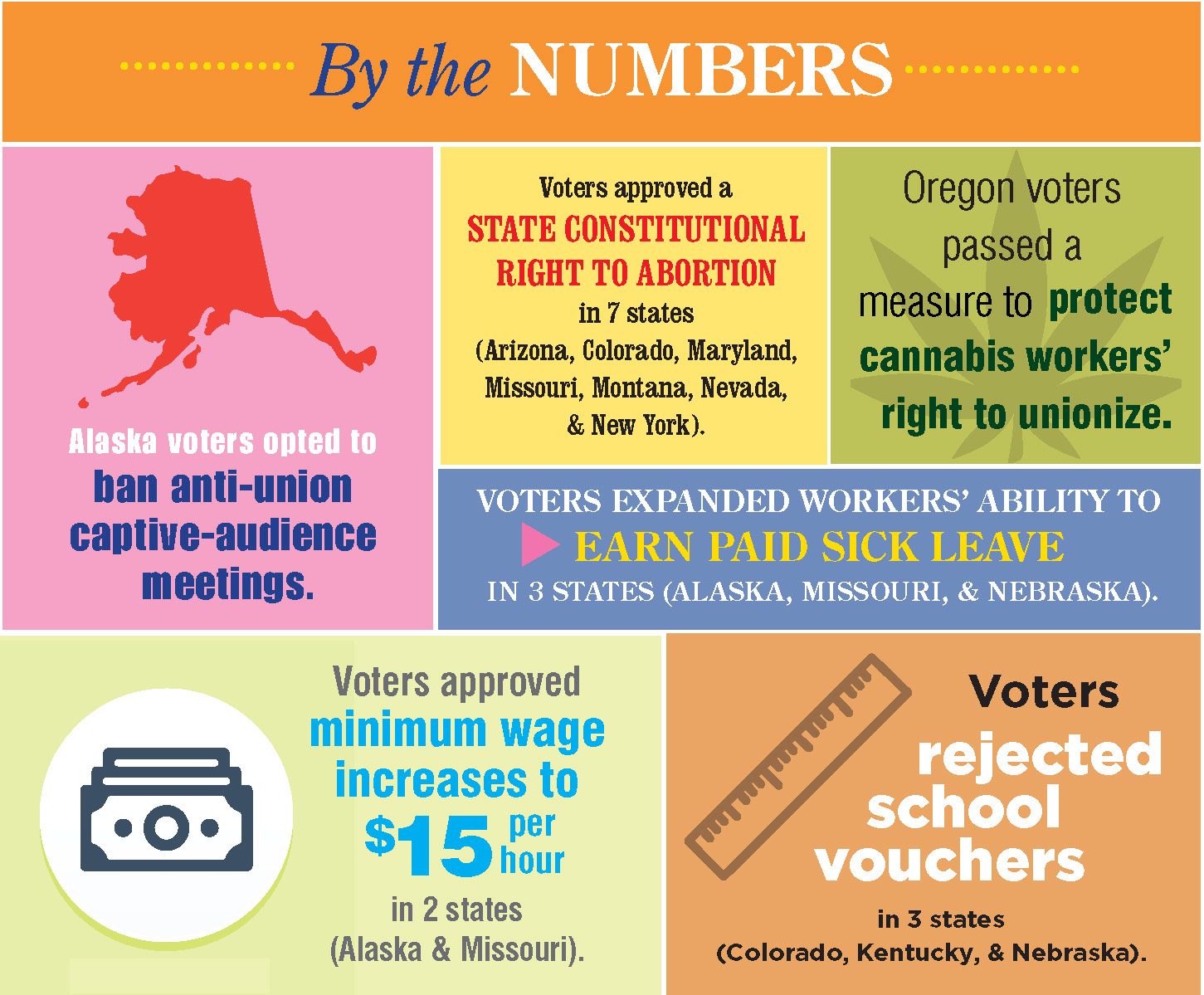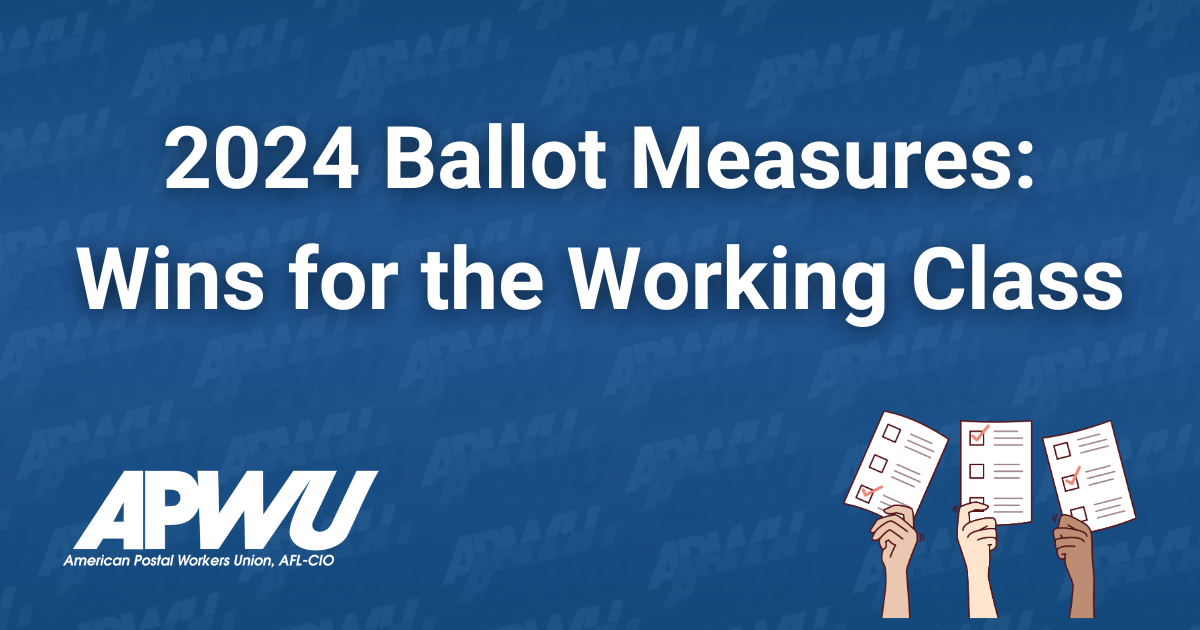January 16, 2025
During the 2024 General Election, voters weighed in on more than just candidates; in many states, they also voted on state-specific ballot measures that mattered most to them as individuals, such as increasing the minimum wage, preserving public education, protecting reproductive rights, and the right to unionize.
During the 2024 General Election, voters didn’t just choose candidates to represent them in their respective local, state, and federal elections, but in many states they also voted on ballot measures on specific issues that mattered most to them as individuals.
Ballot measures, or ballot propositions, are state-level measures that give citizens the power to change laws through a vote, meaning that the voters decide on the issues. Ballot measures can be a key tool to allow voters to pass measures at the state level.
In 2024, voters decided on issues that affect working class people, irrespective of partisan affiliation, such as increasing the minimum wage, expanding paid sick leave, preserving public education, banning anti-union captive-audience meetings, protecting reproductive rights, and the right to unionize.
In many cases, the same states who voted in favor for the issues above also elected candidates that opposed them, showing a dissonance between the progressive policies voters want and the conservative policies elected officials enact. Working people need a party that will focus on the issues that affect us – and fight for those same issues when they are in office. Voters said enough with the status quo and empty promises, they sought change that will impact their lives and families. The results in this election, for both candidates and ballot measures, show that if we are going to win for working people, we need candidates who will fight for us, not the billionaire class. ■


 2024 Ballot Measures: Wins for the Working Class0
2024 Ballot Measures: Wins for the Working Class0
